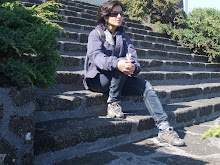If you’ve walked amongst the crowds on Oxford Street in London, picking up snatches of conversation from the mass of moving humanity, and wondered where these thousands of tongues and faces are from, then Robert Winder’s “Bloody Foreigners” might have a few answers for you.
This rich tale aims to tell the story of how people came to settle in Britain, without ringing all the usual alarm bells about “overcrowding” or “swamping.” In fact Winder makes very clear at the outset that asking whether immigration is “good” or “bad” is as futile as asking whether growing old is good or bad. If anything he tries to show that we are all from somewhere else and so we are all immigrants depending on how far back you choose to go.
Much of what and who we assume to be quintessentially British – Marks and Spencers, Tesco, Dorris Lessing, T.S. Eliot – all in fact have immigrant roots. ‘Bloody Foreigners’ is a thoroughly entertaining, compassionate and inspiring story about immigration into Britain and Winder has so many interesting anecdotes up his sleeve that even the most seasoned ‘Britisher’ might look at his or her country differently after reading this book.
There is no Statue of Liberty-like greeting to immigrants sailing into a British harbor but throughout history these shores have witnessed the disgorging of thousands upon thousands of entrepreneurial fortune-hunters, liberated freedom-lovers and persecuted asylum-seekers and despite the grumbling, whingeing and occasional open hostility, these people have been accepted and many have flourished. For all practical purposes, Winder’s story begins with the coming of the Romans and continues swiftly down the ages to modern times with the arrival of refugees and asylum seekers from war zones in places like Cyprus, Sri Lanka, Somalia, Iraq and Afghanistan.
Britain has had its fair share of dark chapters through this period like the expulsion of the Jews in 1290 under Edward I, the witch-hunt against Italians after Italy entered the Second World War on the side of Germany and the racism directed at African-Caribbeans and South Asians.
In describing these chapters from history, Winder really lifts the narrative with incredible anecdotes. After the Jews were expelled their houses were sold and some of the proceeds from the sale were used towards some new stained glass windows for, shockingly enough, Westminster Abbey. Soon to replace the Jews in the finance industry were Italian immigrants and the legacy of families like Ricardi and Frescobaldi are evident in place names like Lombard street in London. The Huguenots, persecuted in France crossed over to England where many of their master weavers set up humming looms. The old Threadneedle Street owes its name to their industry.
One of the problems, however, with Winder’s account is that he romanticizes immigrants and inadvertently demonizes the “hosts”. Many immigrants cling to old ways so strongly that they can sometimes become active partners in their own alienation. The other problematic area is diaspora politics where immigrants can reveal all the same biases and hypocrisies back home that they may complain exist in their new country. But Winder doesn’t pause on this for breath at all.
This criticism notwithstanding, Bloody Foreigners, is a refreshing take on a subject that is more often discussed by invoking doomsday scenarios of crowded streets rife with crime.
Britain has produced Edward I, Oswald Mosley, Enoch Powell, Nick Griffin and many like them. But throughout this period, the waves of new arrivals haven’t stopped. Britain didn’t stop being a place where immigrants thought they would get a fair shot.
Winder’s description of the suspicion and contempt in which Italians were held during World War II is reminiscent of the recent reaction towards Muslims. Every age seems to expose a new group. But there is little doubt that this is an onward march of progressive legislation and changing attitudes. Race relations have continued to take one step back and two steps forward, withdrawn again and then leapt forward. Bloody Foreigners is a paean to this saga of migration.
Wednesday, November 18, 2009
Subscribe to:
Post Comments (Atom)


4 comments:
Concise take on an interesting book... although I wonder about the "active partners in their own alienation" part. One would imagine that it would be natural for humans who might have undergone the not inconsiderable trauma of being uprooted from their family/culture/country to try and maintain ties to their origins... where one draws the line between nourishing cultural roots and clinging to the old would, I think, be entirely subjective...no? One Frenchman's integrative measure aka a headscarf ban could be an infringement of a Muslim woman's right to her religious/cultural heritage.
Ganja Turtle,
I quite agree with you in the example you use involving the French model of "integration" which can translate into "do it our way". And I don't mean to make any sweeping generalisations about immigrants being responsible for their own situation. That is a silly suggestion. I guess I mean the cases where people show an incredible close-mindedness and want to carry on creating the same patriarchal set up in a new country (amongst other things).
s383視訊,a片.色咪咪影片網a.交友網-視訊.a咆哮小老鼠.台北援交無碼av女優.sogo 色論壇,嘟嘟情人色網影片.視訊情人主播脫衣秀微風論壇.ut台中聊天室.免費色咪咪影片網,a片.免費色咪咪影片網.性愛照片,洪爺影城.a性感用品維納斯.dvd,情人視訊網.台南視訊,免費18遊戲.kk視訊,色情 a 片.aa 片俱樂部,免費av.免費a網,免費視訊辣妹.美女交友-視訊正妹.本土自拍天堂,無碼av女優.080情人網,免費a片欣賞.免費線上歐美A片段觀看.視訊辣妹,成人,嘉義視訊.無碼女優,免費色情電影.視訊網愛聊天室,h影片.視訊網愛聊天室.線上a片,上班族視訊.片免費aa免費視訊聊天論壇.免費aa片試看,玩美女人.情色文學成人小說,情趣.火辣視訊情人 .免費視訊,情趣 用品 店.QQAV視訊聊天網 .視訊妹,aa片免費看.線上免費a片觀看,甜心寶貝.免費a影片線上直播 h.1007激情網愛聊天室 .aa影音視訊聊天室.a免費視訊聊天網.無碼 av影片 美眉 美女 聊天室 遊戲區 .視訊交友ggo.免費線上觀賞卡通影片.4u成人,視訊 美女.hi5 tv免費影片.A片,成人影片分享.成人視訊聊天室.人之初貼圖區.ez聊天網.視訊歌唱秀.蔡依林性感影片.視訊交友90739-愛情館.台中援交.成人自拍,嘿咻.qq 美美色網影片.兼職援交.avno1.免費試看av.彩虹頻道免費影片.視訊交友web365.免費h影片.免費色倩短片試看.sex520貼片.性愛貼圖區
On a related note: http://www.nytimes.com/2009/12/01/opinion/01iht-edcohen.html?_r=1
Post a Comment